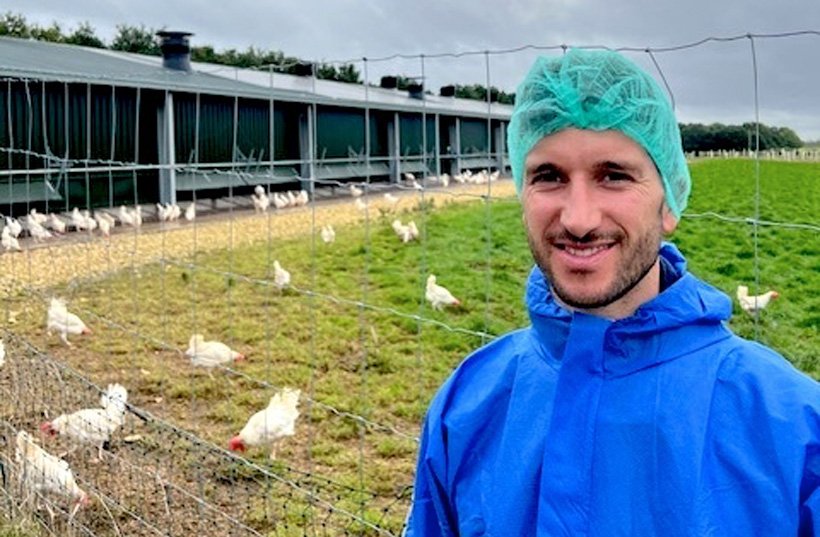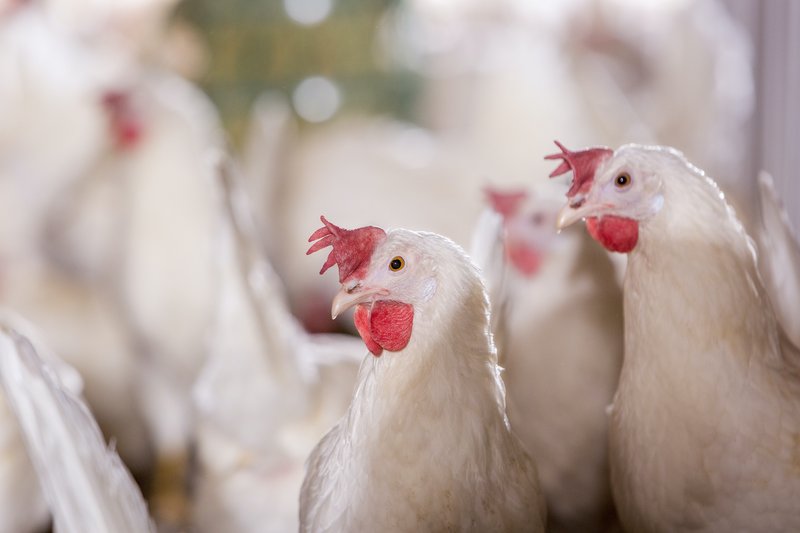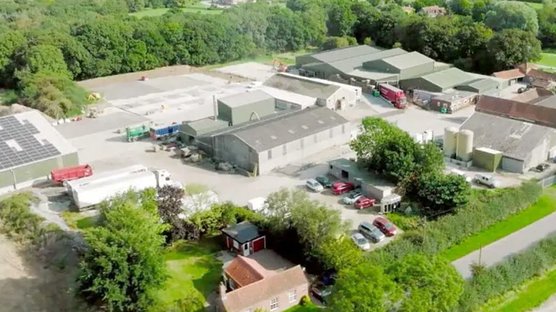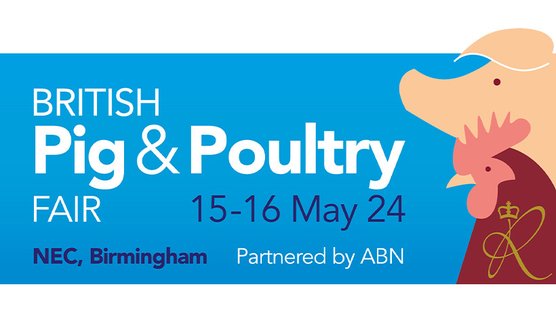
Published on Oct. 23, 2023
Reflecting on 10 Years of Experience with White Birds
Tim Bradley of JV Bradley Limited, South Lincs explains his commitment to white layers
Ten years ago, Des Bradley was interviewed about his decision to become an early UK adopter of white birds, and specifically the Dekalb White. This is what he had to say back then.
“What we have found with the white birds is that they are easier to manage,” he said. “They seem to be more mobile; they will go in and out of the sheds readily, which is always a good thing; we have almost no floor eggs; there is no feather pecking; they are easier to walk around; they don’t crowd around you or crowd down one end of the shed, they stay very even within the shed. They are all little things where you wouldn’t expect to see differences, but they are quite a different bird.”
Des has now handed the reins of the business to his son Tim Bradley who continues to be evangelical about the advantages white egg layers offer to UK producers.
JV Bradley is a third-generation family business that has evolved from the beef and arable farm started by Tim’s grandfather John Victor Bradley. The farm was passed down to Des Bradley in the late 80 s and it was his decision to diversify into poultry. As Tim explains“Dad wanted to do something different, so after a lot of research he identified free range egg production as a new and developing sector, with a lot of potential - and it turned out he was right!”
Consequently, the family were one of the first producers in the UK to go into free range production. This innovative and forward-looking approach also led them to becoming pioneers of white birds, despite the predominance of brown breeds at the time!
“The first shed housed 4000 birds in a flat deck, polytunnel set up” Tim recalls “And we only decommissioned it a few years ago”.
Over the next few decades Des expanded the egg production capacity, building one or two flat deck sheds per year, until the total flock size had risen to 64,000 birds, consisting of a variety of brown breeds. Expansion paused in the 2000s until Tim Bradley came back into business, in 2011, after extensive travels in Europe, Asia and S America.
Tim threw himself into farming, learning the job on the go over next 8 years, alongside taking farm management, husbandry, and poultry courses. “There was a lot to learn, with beef and arable running alongside poultry”. Tim admits.
When Des retired three years ago, Tim and his family moved into the farmhouse and this marked the transition of generations, and the beginning of a new era for the business.
“My first decision was to build our first 16,000 bird multi-tier unit, taking the total flock size to 80,000 birds. We then began a programme to decommission and replace the poly tunnels which led us to building a further 32,000 multi-tier unit” Tim explains.
The first house was equipped with a Vencomatic Veranda Aviary system. Designed around freedom of movement and welfare, and with input from the RSPCA.
“We really liked the simplicity of the Venomatic system. Everything is visible, making it easy to manage, with easier turnarounds and for a multi-tier it’s straightforward. Tim comments “but by the time it came round to specifying the second house it was discontinued so we chose the Jansen Comfort 2 system which we felt had similar advantages”.

Beginning in 2013, the business transitioned to white birds, selling eggs to Noble Foods, who were breaking the eggs for food products. “In the early days we chose to house 50% Dekalb White and 50 % Lohmann LSL flocks, but availability of the LSL ceased, so we moved exclusively to Dekalb White. We quickly found that both white breeds produced good egg numbers, were easier to manage than brown birds and had good behavioural traits, but we discovered it was easier to control egg size with the Dekalb birds.
“We had a very long-standing relationship with Peter Cumbers of Joice and Hill, having found success with the Bovans Brown. “Before we made the decision to farm white birds Joice and Hill took us on a tour of Holland, which was helpful in decision making. Most units in Holland were barn at that time, but seeing what I would describe as “barn deluxe”, with a winter garden allowed us to envisage how they would respond to free-range. Joice and Hill have definitely got the greatest knowledge of white birds in UK and Europe. The back-up is there from both the UK technical sales team and the geneticists in Europe” Tim comments.
“The white birds are calm but mobile, they don’t cluster, but move around freely , get to nest boxes with ease which more or less eradicates floor eggs” Tim states “In addition, when we moved to whites, working with Steve Pritchard of Premier Nutrition, we changed the regime to three feeds a day, one in AM and two in the PM. This reduces food wastage and appetite, leading the birds to convert feed better. In terms of liveability, because we have still got flat-decks, we are limited by muck pit capacity, but the birds still go to 90 weeks, and we are planning on our latest flock in multi-tier going to 103 weeks.
The Noble contract ended in 2018 but Tim was determined to stick with white birds, so here searched the market and began supplying Bumble Hole Foods who have been breaking eggs since 1961 and are now responsible for supplying eggs and egg products to most of the major UK food manufacturers.
The move from Noble also created an opportunity to explore the options for pullet rearing. “We knew CFP were supplying a lot of new sites in Wales and after visiting their sites we were impressed enough to trust them with our rearing needs.
“Looking to the future we will continue to decommission the flat bed polytunnels and replacing them with multi-tier over the next few years. However, it’s a bit of a nervous time, and it’s been pretty awful for everyone. Fortunately, this year the economics have turned round, but still time to be cautious. I fear another cycle of boom and bust if people who left the market now re-enter.
“We will continue with white birds -I always said I won’t go back to brown, and I am sticking to it” Tim concludes.



